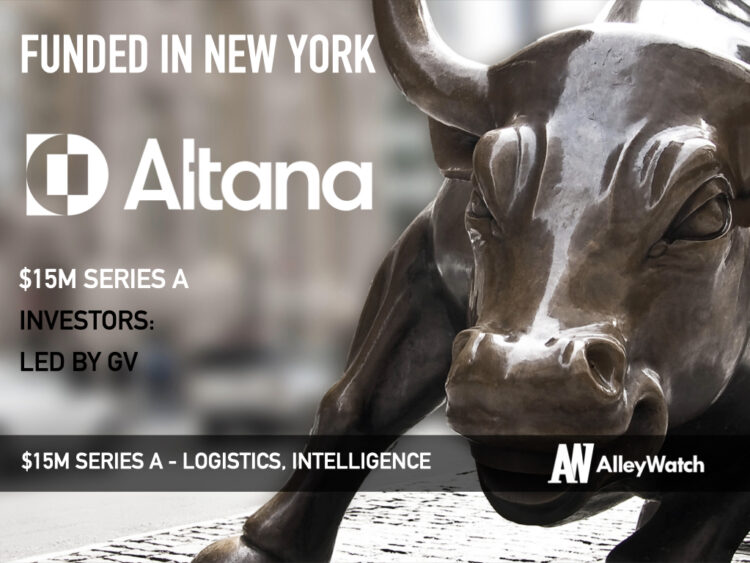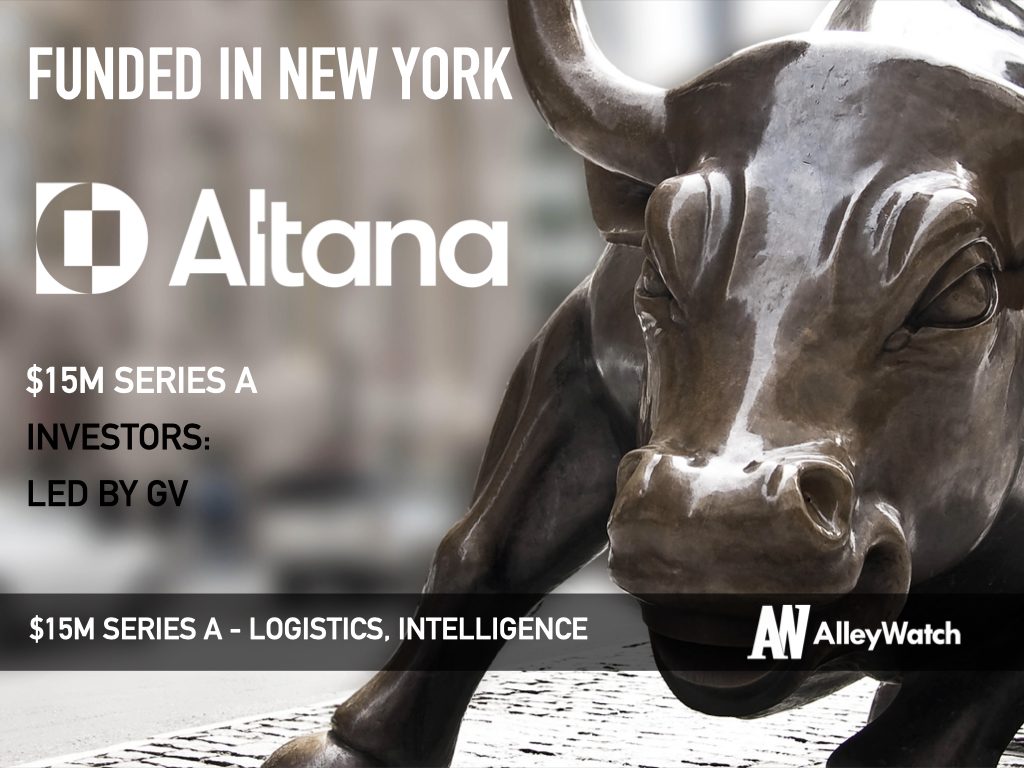The pandemic has tested the resiliency of global supply chains in an unprecedented manner and exposed vulnerabilities. Shock waves have unsettled global trade, creating uncertainty and disruption with these impacts expected to be felt through the next few years. Altana AI is an AI-powered trade intelligence platform focused on supply chains to help organizations better position themselves for this new economic reality and remain competitive. Private sector clients on the platform are able to build a holistic picture of their entire supply chain by tracing sources, mapping out suppliers and customers, monitoring status, and formulating contingency plans for future disruptions. For governments and logistic providers, the platform provides seamless intelligence and risk ratings on individual shipments for security purposes. The company uses billions of data points to create a living map of global commerce while protecting the privacy and intellectual property of all supply chain participants.
AlleyWatch caught up with Altana AI CEO and Cofounder Evan Smith to learn more about how the company is facilitating more efficient trade by alleviating bottlenecks through data, strategic plans, latest round of funding, which brings the total funding raised to $22M, and much, much more.
Who were your investors and how much did you raise?
Altana AI raised $15 million in Series A funding, led by GV (formerly Google Ventures). Floating Point, Ridgeline Partners, and existing investors Amadeus Capital Partners and Schematic Ventures also joined the round.
Tell us about the product or service that Altana AI offers.
The Altana Atlas is an AI model of the global supply chain used by governments and the private sector to build trusted commerce. By connecting to the Altana Atlas, it is possible to know where your products come from, trust your suppliers and customers, and build safe, sustainable, and resilient supply chains.
Specific use cases/user stories include:
We help the global trade community – both customs authorities and logistics providers – to see inside the box: We call this “Know Your Shipment.” We identify the shipper and receiver, predict the proper customs declarations, and deliver a “Trusted Shipment Rating” to help distinguish in real time between safe and lawful trade vs. illicit trade, which might include tax evasion, counterfeits, fentanyl, or security threats like weapons and explosives.
In our “Know Your Network” product, we help enterprise supply chain teams to connect to a living map of their supply chains beyond their direct suppliers, so that they can: build more resilient networks, get ahead of risks upstream (like the auto/semi-conductor issues), and map their sustainability footprint all the way back to the raw materials and factories upstream.
Finally, our Know Your Network product is also being used by national security, law enforcement, and intelligence agencies to target illicit activity in the underbelly of global supply chains — like WMD pre-cursors moving to high-risk companies — or fentanyl trafficking networks coming out of China into Mexico, and then into the US.
 What inspired the start of Altana.ai?
What inspired the start of Altana.ai?
Many of the central challenges of our time are correcting the failures and side effects of the globalization of the last fifty years. Taking on climate change, wealth inequality, and national security threats require changing how our supply chains work.
A refactoring of the world’s supply chain is now underway, driven by geopolitical competition, COVID supply chain shocks, the rise of e-commerce, and demands for sustainability by investors and consumers. The opaque, just-in-time supply chains that we currently rely upon, making it next to impossible to know: where our products come from and what impact they have on people and the planet, what’s inside of every shipping container, and what the extended network is behind any supplier or customer relationship. There is no source of truth, and without global intelligence, no single organization can address these challenges alone.
We started Altana AI to build the single source of truth for the global supply chain and to help transition to a more fair, secure, and sustainable model for global commerce. We want to help build Globalization 2.0.
How is Altana AI different?
Altana has built an AI model of the supply chain that is fundamentally different from anything else in the market. This is because of a unique federated machine learning approach that allows us to learn from sensitive data that would never be directly pooled and shared because of IP, privacy, and sovereignty concerns. We’re already working with many of the world’s most important customs, national security, logistics, and enterprise organizations.
Through this federated deployment architecture and the use of transfer learning and federated learning across the network, we are able to model supplier behaviors, detect supply chain network risks and vulnerabilities, classify products, and make recommendations for trade and supply chain management drawing on a global network of data that could never be brought together directly.
What market does Altana.ai target and how big is it?
Altana AI is working with governments, logistics providers, and enterprises to map and manage global supply chains. We are creating a new category in what we believe is a $100B+ market opportunity.
What’s your business model?
SaaS, PaaS.
How has COVID-19 impacted the business??
When the pandemic hit, our logistics and customs agency customer segments became immediately preoccupied with managing through all of the border closures and associated disruptions to their operations, which was a headwind for us through 2020 and our go-to-market with our Know Your Shipment product, which has since recovered nicely.
On the other hand, the pandemic dramatically accelerated enterprise interest in our Know Your Network product. There was an estimated $4 trillion in global lost revenue due to supply chain disruptions in 2020 from COVID, and we have found that C-Suites at nearly every major enterprise with a physical supply chain are focused on mapping their multi-tier supply chain footprints, detecting and managing risks deeper in their networks, and building more resilient supply chains that can withstand these global disruptions.
On the other hand, the pandemic dramatically accelerated enterprise interest in our Know Your Network product. There was an estimated $4 trillion in global lost revenue due to supply chain disruptions in 2020 from COVID, and we have found that C-Suites at nearly every major enterprise with a physical supply chain are focused on mapping their multi-tier supply chain footprints, detecting and managing risks deeper in their networks, and building more resilient supply chains that can withstand these global disruptions.
What was the funding process like?
Raising a $15M round over Zoom with people I’ve never met before was surreal, but the format also allowed us to cover a lot of ground quickly. We closed in two and a half months from starting the raise.
What are the biggest challenges that you faced while raising capital?
The greatest challenges of raising capital were the challenge of connection and persuasion over Zoom. I love to meet face-to-face and build relationships.
What factors about your business led your investors to write the check?
In just two and a half years into our journey, we’re already working with some of the world’s most important government agencies, logistics providers, and global enterprises. We are selling to the top of the food chain, which is very unusual for an enterprise startup. Relatedly, we are unlocking massive, differentiated data through these engagements as we build our model of B2B commerce.
In just two and a half years into our journey, we’re already working with some of the world’s most important government agencies, logistics providers, and global enterprises. We are selling to the top of the food chain, which is very unusual for an enterprise startup. Relatedly, we are unlocking massive, differentiated data through these engagements as we build our model of B2B commerce.What are the milestones you plan to achieve in the next six months?
Rapidly scaling our technology team, and executing on a number of massive deployments.
What advice can you offer companies in New York that do not have a fresh injection of capital in the bank?
Now is a great time to raise money.
Where do you see the company going now over the near term?
We are doubling down on our core strengths: data sourcing, data fusion, knowledge graph construction, and AI for insight generation. By delivering for our early adopters in the government, enterprise, and global logistics, we will set ourselves up for terrific Series B.
What’s your favorite outdoor dining restaurant in NYC?
The sidewalk tables at Via Carota.





